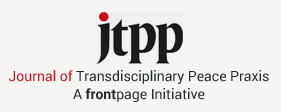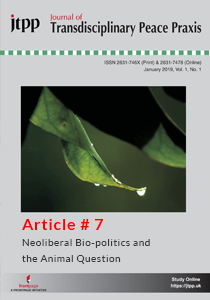Description
Neoliberal Bio-politics and the Animal Question
Gwen Hunnicutt (Associate Professor of Sociology at the University of North Carolina Greensboro, USA)
The environmental impact of the factory farming industry is staggering. Animal waste is dumped in water or land leading to polluted waterways. Livestock production is responsible for 14.5% of greenhouse gas (GHG) emissions worldwide. Expropriating land for the increasing consumption of animal foods can lead to water insecurity, food insecurity, soil degradation, and the destruction of rainforests and finite resources. As animal agriculture contributes to climate change, a warming planet aggravates violent conflict.
A substantial amount of peace and conflict studies literature is focused on dismantling systems of human oppression, yet a full explanation of human precarity and ecological degradation requires understanding the exploitation of nonhuman animals as well.
In this paper, the author explores one of the most significant causes of ecological degradation: the exploitation of nonhuman animals in neoliberal context. The author further argues for the adoption of post-humanist ethics, which offers the analytical framework necessary to complicate the interspecies relationships which underpin ecological destruction.





